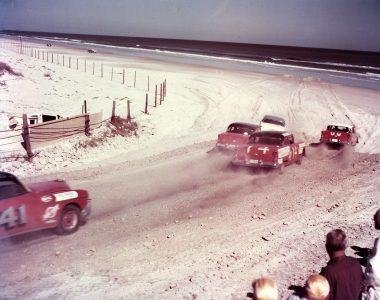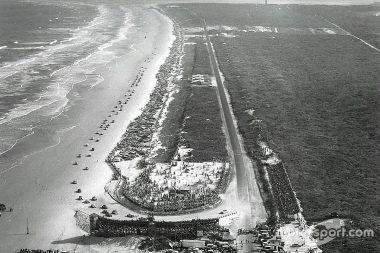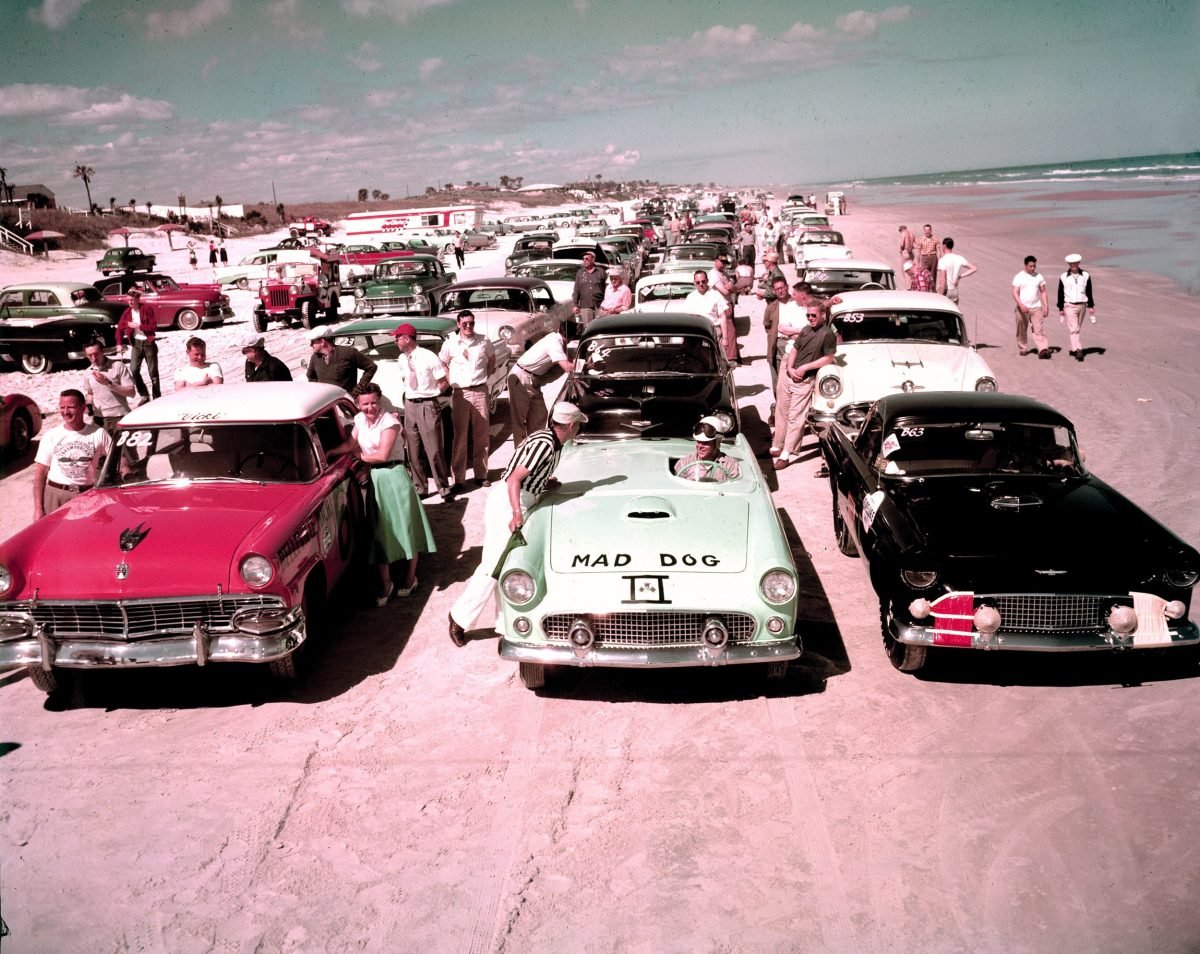Blood, sand, and oil: Stock Car Racing on Daytona Beach
 Something about Florida must breed crazy. And nothing says Florida like a day at the beach—especially if it involves driving at dangerously high speeds.
Something about Florida must breed crazy. And nothing says Florida like a day at the beach—especially if it involves driving at dangerously high speeds.
The sands of Daytona Beach have attracted drivers since the early 20th century. British daredevil Sir Henry Segrave set the world land speed record here in 1927, and again in 1929 when he pushed his Golden Arrow to 231 mph. In the 1930s, a portion of the beach was coopted as one-half of an oval shaped track for stock car racing—the beginning of an annual event which would eventually become the Daytona 500.
 In early days, races were ill-planned and disorderly affairs. The first race, in 1936, had to be called at 75 laps due to overcrowding and degraded sand conditions. Over the years that followed, event promoters would routinely cheat drivers by skipping out after races without paying anyone—a practice which was so common it prompted the formation of NASCAR in 1948 as a way to standardize the system. By then, the beach was hosting numerous races each year, but the growing crowds and increased shoreline development meant NASCAR needed a new home. The Daytona Beach course held its last races in 1958. A year later, the inaugural Daytona 500 would be held 12 miles away at the newly constructed Daytona International Speedway… read more and view the gallery >
In early days, races were ill-planned and disorderly affairs. The first race, in 1936, had to be called at 75 laps due to overcrowding and degraded sand conditions. Over the years that followed, event promoters would routinely cheat drivers by skipping out after races without paying anyone—a practice which was so common it prompted the formation of NASCAR in 1948 as a way to standardize the system. By then, the beach was hosting numerous races each year, but the growing crowds and increased shoreline development meant NASCAR needed a new home. The Daytona Beach course held its last races in 1958. A year later, the inaugural Daytona 500 would be held 12 miles away at the newly constructed Daytona International Speedway… read more and view the gallery >



Iroquois Beer & Ale Arrowhead 1842 Vintage Men’s T-Shirt
Broguiere’s Farm Fresh Dairy 1920 Vintage Men’s T-Shirt
Fly by Night 1975 Vintage Men’s T-Shirt